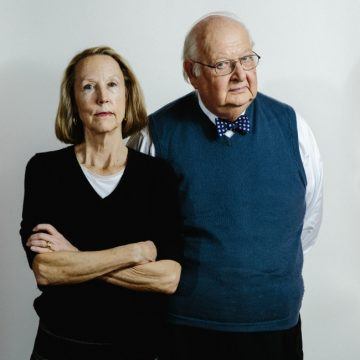Spencer Lee-Lenfield in the Chronicle of Higher Education:
 Before 2015, few people would have thought of not finishing college as a public-health issue. That changed because of research done by Anne Case and Angus Deaton, economists at Princeton who are also married. For the past six years, they have been collaboratively researching an alarming long-term increase in what they call “deaths of despair” — suicides, drug overdoses, and alcoholism-related illnesses — among white non-Hispanic Americans without a bachelor’s degree in middle age.
Before 2015, few people would have thought of not finishing college as a public-health issue. That changed because of research done by Anne Case and Angus Deaton, economists at Princeton who are also married. For the past six years, they have been collaboratively researching an alarming long-term increase in what they call “deaths of despair” — suicides, drug overdoses, and alcoholism-related illnesses — among white non-Hispanic Americans without a bachelor’s degree in middle age.
Change any one of those attributes (race, nationality, education), and the trend disappears. Mortality has not increased among white Americans with a bachelor’s degree, nor American people of color, nor non-Americans without a bachelor’s degree. (Indeed, all-cause mortality among those groups has continued to go down, as usual.) Something about not having a bachelor’s degree in America, especially when white, can be deadly.
The term “deaths of despair” has taken on a life of its own, becoming ubiquitous in newspapers, magazines, and op-eds. It has been the subject of think-tank panels, conferences, and even government inquiry. “America Will Struggle After Coronavirus. These Charts Show Why,” proclaims a New York Times article that visualizes some of their research. This past fall, Congress’s Joint Economic Committee issued its own report on “Long-Term Trends in Deaths of Despair.”
Case and Deaton’s new book, Deaths of Despair and the Future of Capitalism (Princeton University Press), takes their message even further.
More here.
